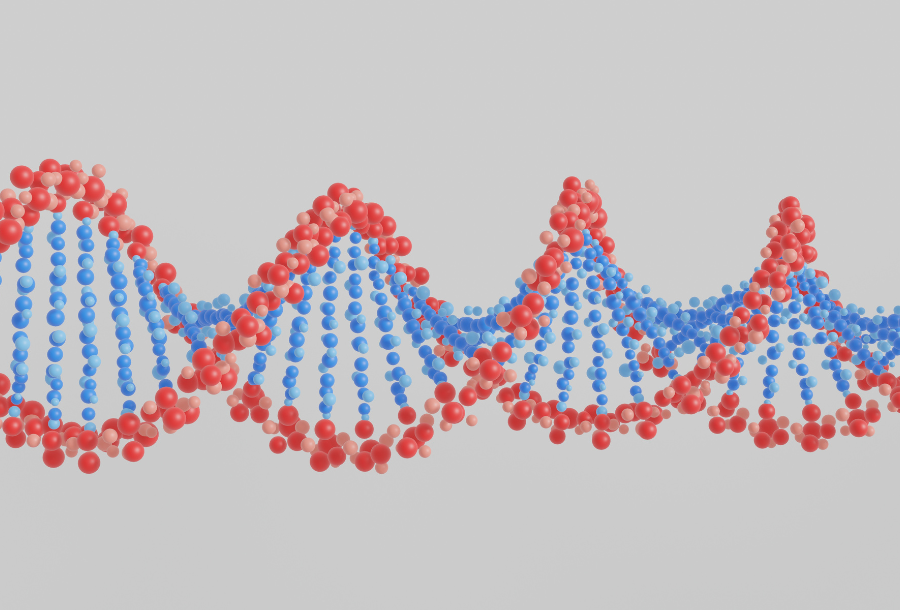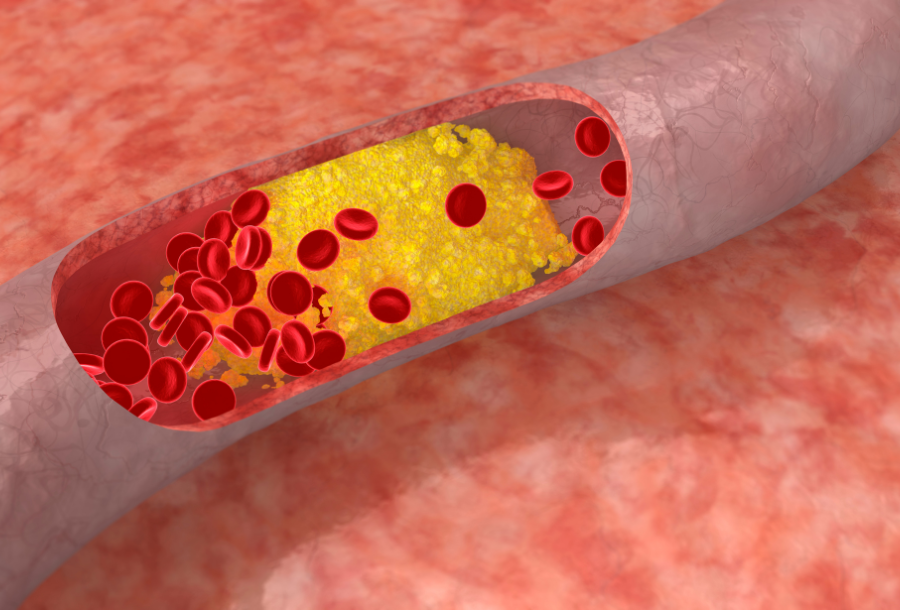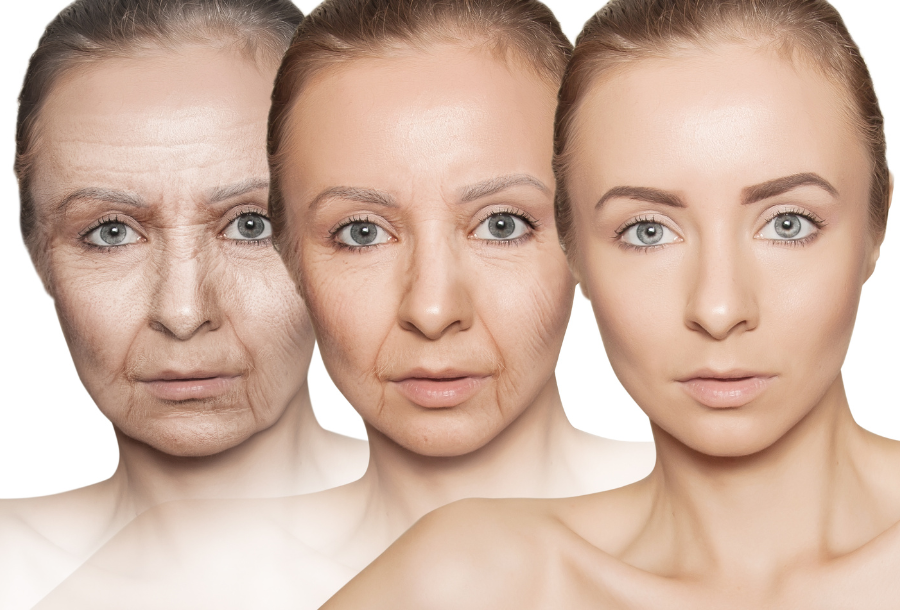
What is your bioage?
July 24, 2025
Your bioage is a measure of how well your body functions at a cellular level compared to your actual age.
Unlike your chronological age (how many years you’ve lived), bioage reflects your health and performance based on factors like metabolism, genetics, and lifestyle. The good news? You can influence and even lower your bioage through intentional changes to your daily habits.
Key takeaways:
- Bioage vs. chronological age: Two people of the same age can have vastly different bioages, affecting energy, physical ability, and long-term health.
- Why it matters: Bioage is linked to risks of diseases like diabetes, cancer, and dementia. Lower bioage means better health and a longer, healthier life.
- Metabolic health connection: Key markers like blood sugar, cholesterol, and blood pressure play a major role in determining bioage.
- How to measure it: Continuous Glucose Monitoring (CGM) provides real-time insights into how your body processes energy, helping you make targeted improvements.
- Lifestyle changes: Small adjustments like eating veggies before carbs, walking after meals, and improving sleep—can slow aging and improve metabolic health.
Actionable insight:
Using tools like CGM, you can track and optimise your diet, exercise, and daily habits to improve your metabolic health and lower your bioage. Programs like Vively offer personalised strategies to help you take control of your ageing process.
How metabolic health affects your bioage
Your metabolic health plays a crucial role in determining how quickly you age. When your metabolism functions efficiently, it slows down cellular aging. On the flip side, when it falters, cellular damage accelerates, pushing your biological age higher than your actual years.
In fact, declining metabolic health is a major contributor to biological aging. The good news? Improving your metabolic health can directly influence - and even slow down - this process.
Main components of metabolic health
Metabolic health is built on five key markers that reveal how effectively your body processes energy and maintains cellular function.
The Ultrahuman Team defines it as "having ideal levels of blood sugar, triglycerides, high-density lipoprotein (HDL) cholesterol, blood pressure, and waist circumference, without using medications".
Here's why each marker matters:
- Blood sugar regulation: Keeping glucose levels stable is critical. Fluctuations can trigger inflammation and oxidative stress, both of which speed up cellular aging.
- Triglycerides and HDL cholesterol: These indicate how well your body processes fats. High triglycerides combined with low HDL cholesterol signal metabolic dysfunction, which can accelerate aging in your cardiovascular system.
- Blood pressure: Elevated blood pressure strains your heart and blood vessels, causing them to age faster.
- Waist circumference: This measures visceral fat - the fat stored around your organs. Visceral fat releases inflammatory compounds that hasten aging.
The reality is stark: According to a 2023 Swiss Re report, around half of all adults globally have poor metabolic health. In fact, an estimated 20–25% of adults worldwide meet the criteria for metabolic syndrome—a cluster of risk factors including high blood pressure, high blood sugar, abnormal lipid levels, and abdominal obesity.
For those with overweight or obesity, the numbers are even more alarming - 92% and 99.5%, respectively, are metabolically unhealthy.
How poor metabolism speeds up aging
When your metabolism struggles, your biological age can skyrocket. Research on diabetes highlights just how much glucose regulation impacts aging.
For instance, people with Type 2 diabetes have a biological age that’s 12.02 years older than those without it. Type 1 diabetes is linked to an even steeper increase of 16.61 years, while prediabetes adds 2.69 years.
Even in non-diabetic individuals, every 1 mmol/L increase in glucose levels corresponds to a rise of about 0.40 years in perceived age. And as you age, metabolic efficiency naturally declines. By the time you’re in your 50s, your body’s ability to regulate glucose drops by about 8% per decade.
But here’s the encouraging part: this decline isn’t set in stone. Studies show that dietary changes, especially when paired with exercise can reverse some of the effects.
Understanding the connection between metabolism and biological aging is the first step. Next, explore how to monitor these changes in real time and take charge of your aging process.
Worried that chronic illness runs in your family? Our guide on what you can control helps you understand how lifestyle and metabolic health can shape your future.
Using CGM to measure your bioage
Continuous glucose monitoring (CGM) offers a detailed, ongoing view of glucose patterns that can directly impact your bioage. Unlike traditional finger-prick tests, which only provide a momentary snapshot of your blood sugar levels, CGM technology uncovers trends and fluctuations that are crucial for understanding your metabolic health. Let’s dive into how this real-time data connects to your bioage.
What is continuous glucose monitoring?
CGM systems consist of a sensor, a transmitter, and a smartphone or similar device to display results. These systems measure glucose levels in the interstitial fluid - the fluid between your cells every few minutes.
Depending on the brand, sensors typically last 7 to 15 days, while some implantable models can work for months.
What makes CGM particularly powerful is its ability to detect glucose variability in people who aren’t diabetic. Research shows that even those deemed metabolically healthy can experience significant blood sugar swings that traditional tests fail to capture.
How CGM data shows your bioage
CGM data provides several key metrics that reflect biological aging. These include average glucose levels, Time in Range (TIR), glucose variability, and how your body reacts to specific foods and activities. These metrics align with the metabolic markers linked to aging, showing how even small shifts in glucose can signal faster aging.
For example, a coefficient of variation (CV) below 36% indicates stable glucose levels, while a CV of 36% or higher suggests metabolic instability, potentially accelerating aging. TIR measures how often glucose levels stay within the optimal range. Maximising TIR and reducing time spent in hypoglycemia offers a clearer view of your metabolic efficiency.
CGM can also track how your body responds to meals, exercise, sleep, and stress, with just 14 days of monitoring providing insights into long-term metabolic health. This data paves the way for personalized strategies to manage your bioage.
Getting personal health insights from CGM
The true strength of CGM lies in its ability to turn everyday choices into actionable health insights. Instead of waiting for annual blood tests, CGM empowers you to make real-time adjustments based on how your daily habits influence your glucose levels.
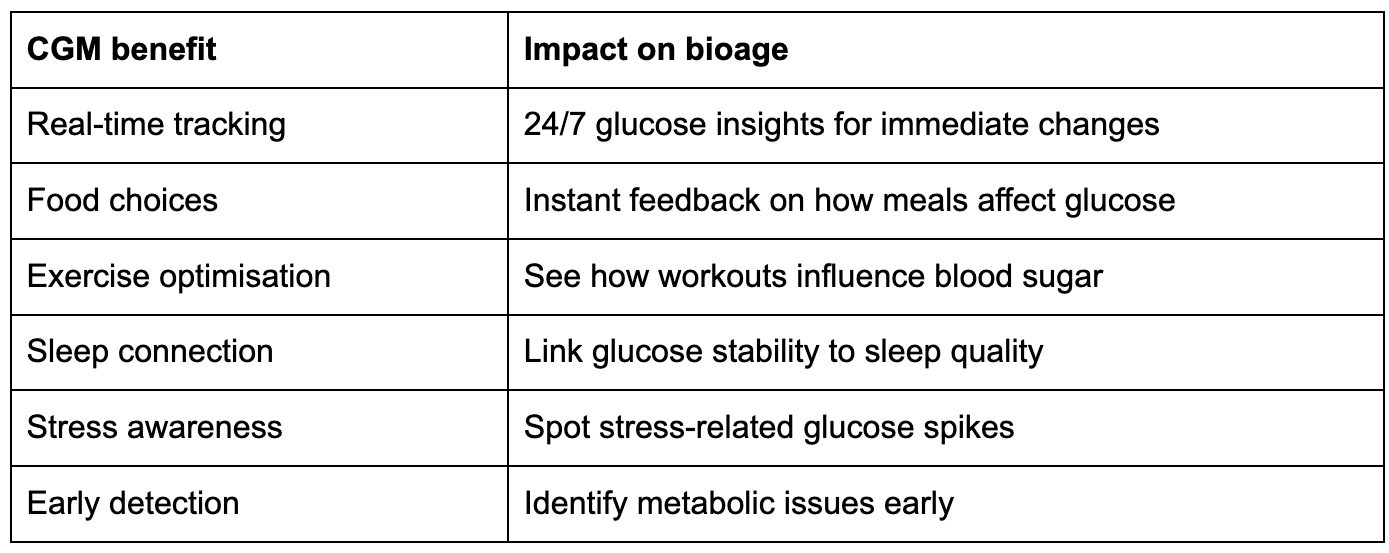
Armed with this information, you can make lifestyle changes tailored to your unique metabolic profile. This approach moves beyond generic health advice, offering strategies specifically designed to improve your metabolic health and reduce your biological age.
Want to improve how your body uses oxygen and boost overall health? Read our complete guide to VO2 max and why it matters for the long run.
How Vively helps you improve the markers behind your bioage
Your biological age isn’t just about how many candles are on your birthday cake—it’s a reflection of how your body is actually functioning. Vively helps you stay ahead of the curve by showing how daily choices impact your metabolic health, which plays a major role in how fast or slow you’re aging.
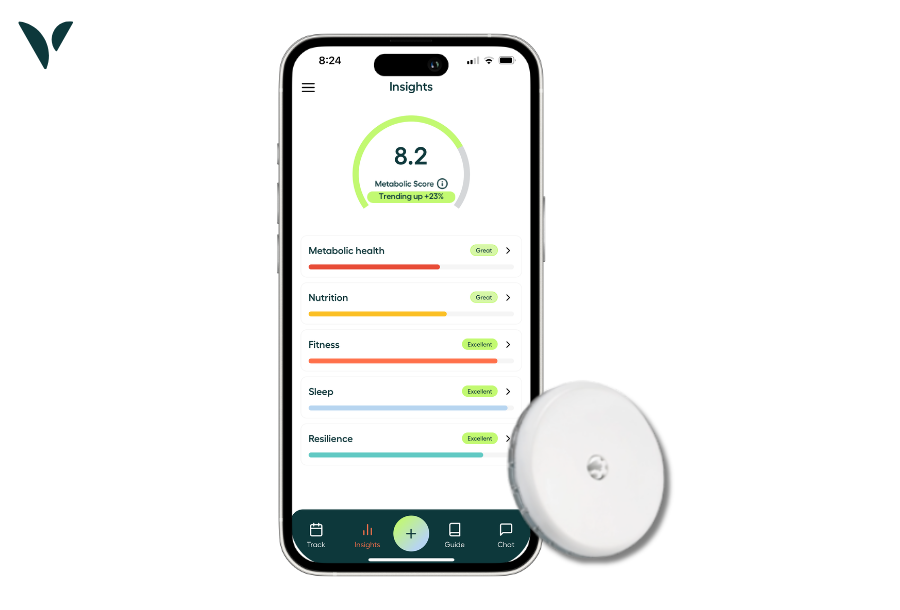
At the heart of the program is your Metabolic Health Score. It’s a daily score out of 10 based on how your body responds to food, movement, sleep, and stress—all tracked through continuous glucose monitoring (CGM). This score gives you a real-time snapshot of how well your body is managing the things that often accelerate aging, like inflammation, poor recovery, or glucose instability.
What Vively offers:
- Access to CGM without needing a diabetes diagnosis
- A personalised Metabolic Health Score to track progress
- Insights into five key areas: nutrition, fitness, sleep, stress, and overall metabolic health
- Simple guidance to improve energy, balance, and resilience
- A proactive way to slow down biological aging with data-backed habits
Vively gives you the tools to take control of your inner health—so your biological age doesn’t have to define your future.
Take control of your bioage today
Knowing your bioage is a powerful step towards improving your health and longevity. Unlike chronological age, which simply counts the years, bioage measures how well your body is functioning, and the good news is, you can influence it with intentional lifestyle changes.
Personalised insights from continuous glucose monitoring (CGM) can guide you in making smarter daily choices.
At the core of healthy aging is metabolic health. This area offers a huge opportunity for improvement, and every positive choice you make contributes to slowing down biological aging.
CGM plays a key role by providing real-time feedback that helps you understand how your body reacts to different foods, activities, and routines. For instance, 87% of CGM users reported adjusting their food choices, and 90% said they adopted healthier lifestyles, all thanks to the immediate insights they gained. This level of personalisation allows you to tailor your habits to what works best for your body.
Simple, consistent changes can make a big difference over time. Whether it’s eating vegetables before carbs, going for a walk after meals, or committing to 7-9 hours of quality sleep, these small adjustments add up. With the help of CGM data, you can see which habits bring the biggest benefits.
Improving your bioage doesn’t require a complete lifestyle overhaul. It begins with understanding your current metabolic health through glucose monitoring and making informed, gradual changes. For example, nearly half of CGM users increased their physical activity in response to glucose spikes, showing how small, data-driven decisions can lead to meaningful progress.
FAQs
What is bioage, and how can I track and improve it?
Your bioage represents the biological age of your body, which might not align with the number on your birth certificate. It’s shaped by factors such as your metabolic health, daily habits, and overall wellness. To determine bioage, experts often rely on methods like DNA methylation analysis, blood biomarker testing, or phenotypic age calculations.
A practical tool for keeping tabs on and improving your bioage is the continuous glucose monitor (CGM). This device provides real-time tracking of blood sugar levels, giving you a clear picture of your metabolic health. By spotting areas for improvement - like tweaking your diet, refining your exercise routine, or enhancing your sleep quality - CGMs empower you to make tailored changes that support healthier aging and boost your overall well-being.
What lifestyle changes can help lower my biological age?
Lowering your biological age starts with adopting habits that promote metabolic health and overall well-being. Here's what to focus on:
- Eat a nutrient-rich diet: Incorporate whole foods, lean proteins, and healthy fats into your meals while cutting back on processed foods and added sugars. Your body thrives on real, unprocessed ingredients.
- Stay active: Regular physical activity like strength training, walking, or yoga can boost your strength, endurance, and metabolic function. Movement is key to keeping your body resilient.
- Prioritise quality sleep: Aim for 7–8 hours of restful sleep each night. This is when your body repairs and regenerates, helping you feel and function at your best.
- Manage stress effectively: Practices like meditation, deep breathing, or journaling can help reduce stress and its toll on your body. A calm mind supports a healthy body.
- Stay hydrated: Drinking enough water throughout the day is essential for energy and cellular health. Hydration fuels your body from the inside out.
These straightforward lifestyle changes can have a lasting impact on how your body ages and performs over time. Small steps, big results.
How can continuous glucose monitoring (CGM) help non-diabetic individuals improve their metabolic health and biological age?
Continuous glucose monitoring (CGM) gives people without diabetes the ability to track their blood sugar levels in real time. This tool provides a clear picture of how daily choices—like what you eat, how you exercise, and even how you handle stress—impact your metabolic health. By spotting trends and pinpointing areas that need attention, CGM helps individuals fine-tune their habits for better health.
Keeping blood sugar levels steady can improve how your metabolism works and may even slow down the aging process on a biological level. With CGM, users gain the knowledge they need to make choices tailored to their specific health goals, supporting long-term well-being and energy.
What is bioage, and how can I track and improve it?
Your bioage represents the biological age of your body, which might not align with the number on your birth certificate. It’s shaped by factors such as your metabolic health, daily habits, and overall wellness. To determine bioage, experts often rely on methods like DNA methylation analysis, blood biomarker testing, or phenotypic age calculations.
A practical tool for keeping tabs on and improving your bioage is the continuous glucose monitor (CGM). This device provides real-time tracking of blood sugar levels, giving you a clear picture of your metabolic health. By spotting areas for improvement like tweaking your diet, refining your exercise routine, or enhancing your sleep quality—CGMs empower you to make tailored changes that support healthier ageing and boost your overall well-being.
What lifestyle changes can help lower my biological age?
Lowering your biological age starts with adopting habits that promote metabolic health and overall well-being. Here's what to focus on:
- Eat a nutrient-rich diet: Incorporate whole foods, lean proteins, and healthy fats into your meals while cutting back on processed foods and added sugars. Your body thrives on real, unprocessed ingredients.
- Stay active: Regular physical activity like strength training, walking, or yoga can boost your strength, endurance, and metabolic function. Movement is key to keeping your body resilient.
- Prioritise quality sleep: Aim for 7–8 hours of restful sleep each night. This is when your body repairs and regenerates, helping you feel and function at your best.
- Manage stress effectively: Practices like meditation, deep breathing, or journaling can help reduce stress and its toll on your body. A calm mind supports a healthy body.
- Stay hydrated: Drinking enough water throughout the day is essential for energy and cellular health. Hydration fuels your body from the inside out.
These straightforward lifestyle changes can have a lasting impact on how your body ages and performs over time. Small steps, big results.
Meet our team.
Subscribe to our newsletter & join a community of 50,000+
Get access to limited content drops, free invites to expert fireside chats, and exclusive offers.

What is your bioage?
Your bioage is a measure of how well your body functions at a cellular level compared to your actual age.
Unlike your chronological age (how many years you’ve lived), bioage reflects your health and performance based on factors like metabolism, genetics, and lifestyle. The good news? You can influence and even lower your bioage through intentional changes to your daily habits.
Key takeaways:
- Bioage vs. chronological age: Two people of the same age can have vastly different bioages, affecting energy, physical ability, and long-term health.
- Why it matters: Bioage is linked to risks of diseases like diabetes, cancer, and dementia. Lower bioage means better health and a longer, healthier life.
- Metabolic health connection: Key markers like blood sugar, cholesterol, and blood pressure play a major role in determining bioage.
- How to measure it: Continuous Glucose Monitoring (CGM) provides real-time insights into how your body processes energy, helping you make targeted improvements.
- Lifestyle changes: Small adjustments like eating veggies before carbs, walking after meals, and improving sleep—can slow aging and improve metabolic health.
Actionable insight:
Using tools like CGM, you can track and optimise your diet, exercise, and daily habits to improve your metabolic health and lower your bioage. Programs like Vively offer personalised strategies to help you take control of your ageing process.
How metabolic health affects your bioage
Your metabolic health plays a crucial role in determining how quickly you age. When your metabolism functions efficiently, it slows down cellular aging. On the flip side, when it falters, cellular damage accelerates, pushing your biological age higher than your actual years.
In fact, declining metabolic health is a major contributor to biological aging. The good news? Improving your metabolic health can directly influence - and even slow down - this process.
Main components of metabolic health
Metabolic health is built on five key markers that reveal how effectively your body processes energy and maintains cellular function.
The Ultrahuman Team defines it as "having ideal levels of blood sugar, triglycerides, high-density lipoprotein (HDL) cholesterol, blood pressure, and waist circumference, without using medications".
Here's why each marker matters:
- Blood sugar regulation: Keeping glucose levels stable is critical. Fluctuations can trigger inflammation and oxidative stress, both of which speed up cellular aging.
- Triglycerides and HDL cholesterol: These indicate how well your body processes fats. High triglycerides combined with low HDL cholesterol signal metabolic dysfunction, which can accelerate aging in your cardiovascular system.
- Blood pressure: Elevated blood pressure strains your heart and blood vessels, causing them to age faster.
- Waist circumference: This measures visceral fat - the fat stored around your organs. Visceral fat releases inflammatory compounds that hasten aging.
The reality is stark: According to a 2023 Swiss Re report, around half of all adults globally have poor metabolic health. In fact, an estimated 20–25% of adults worldwide meet the criteria for metabolic syndrome—a cluster of risk factors including high blood pressure, high blood sugar, abnormal lipid levels, and abdominal obesity.
For those with overweight or obesity, the numbers are even more alarming - 92% and 99.5%, respectively, are metabolically unhealthy.
How poor metabolism speeds up aging
When your metabolism struggles, your biological age can skyrocket. Research on diabetes highlights just how much glucose regulation impacts aging.
For instance, people with Type 2 diabetes have a biological age that’s 12.02 years older than those without it. Type 1 diabetes is linked to an even steeper increase of 16.61 years, while prediabetes adds 2.69 years.
Even in non-diabetic individuals, every 1 mmol/L increase in glucose levels corresponds to a rise of about 0.40 years in perceived age. And as you age, metabolic efficiency naturally declines. By the time you’re in your 50s, your body’s ability to regulate glucose drops by about 8% per decade.
But here’s the encouraging part: this decline isn’t set in stone. Studies show that dietary changes, especially when paired with exercise can reverse some of the effects.
Understanding the connection between metabolism and biological aging is the first step. Next, explore how to monitor these changes in real time and take charge of your aging process.
Worried that chronic illness runs in your family? Our guide on what you can control helps you understand how lifestyle and metabolic health can shape your future.
Using CGM to measure your bioage
Continuous glucose monitoring (CGM) offers a detailed, ongoing view of glucose patterns that can directly impact your bioage. Unlike traditional finger-prick tests, which only provide a momentary snapshot of your blood sugar levels, CGM technology uncovers trends and fluctuations that are crucial for understanding your metabolic health. Let’s dive into how this real-time data connects to your bioage.
What is continuous glucose monitoring?
CGM systems consist of a sensor, a transmitter, and a smartphone or similar device to display results. These systems measure glucose levels in the interstitial fluid - the fluid between your cells every few minutes.
Depending on the brand, sensors typically last 7 to 15 days, while some implantable models can work for months.
What makes CGM particularly powerful is its ability to detect glucose variability in people who aren’t diabetic. Research shows that even those deemed metabolically healthy can experience significant blood sugar swings that traditional tests fail to capture.
How CGM data shows your bioage
CGM data provides several key metrics that reflect biological aging. These include average glucose levels, Time in Range (TIR), glucose variability, and how your body reacts to specific foods and activities. These metrics align with the metabolic markers linked to aging, showing how even small shifts in glucose can signal faster aging.
For example, a coefficient of variation (CV) below 36% indicates stable glucose levels, while a CV of 36% or higher suggests metabolic instability, potentially accelerating aging. TIR measures how often glucose levels stay within the optimal range. Maximising TIR and reducing time spent in hypoglycemia offers a clearer view of your metabolic efficiency.
CGM can also track how your body responds to meals, exercise, sleep, and stress, with just 14 days of monitoring providing insights into long-term metabolic health. This data paves the way for personalized strategies to manage your bioage.
Getting personal health insights from CGM
The true strength of CGM lies in its ability to turn everyday choices into actionable health insights. Instead of waiting for annual blood tests, CGM empowers you to make real-time adjustments based on how your daily habits influence your glucose levels.

Armed with this information, you can make lifestyle changes tailored to your unique metabolic profile. This approach moves beyond generic health advice, offering strategies specifically designed to improve your metabolic health and reduce your biological age.
Want to improve how your body uses oxygen and boost overall health? Read our complete guide to VO2 max and why it matters for the long run.
How Vively helps you improve the markers behind your bioage
Your biological age isn’t just about how many candles are on your birthday cake—it’s a reflection of how your body is actually functioning. Vively helps you stay ahead of the curve by showing how daily choices impact your metabolic health, which plays a major role in how fast or slow you’re aging.

At the heart of the program is your Metabolic Health Score. It’s a daily score out of 10 based on how your body responds to food, movement, sleep, and stress—all tracked through continuous glucose monitoring (CGM). This score gives you a real-time snapshot of how well your body is managing the things that often accelerate aging, like inflammation, poor recovery, or glucose instability.
What Vively offers:
- Access to CGM without needing a diabetes diagnosis
- A personalised Metabolic Health Score to track progress
- Insights into five key areas: nutrition, fitness, sleep, stress, and overall metabolic health
- Simple guidance to improve energy, balance, and resilience
- A proactive way to slow down biological aging with data-backed habits
Vively gives you the tools to take control of your inner health—so your biological age doesn’t have to define your future.
Take control of your bioage today
Knowing your bioage is a powerful step towards improving your health and longevity. Unlike chronological age, which simply counts the years, bioage measures how well your body is functioning, and the good news is, you can influence it with intentional lifestyle changes.
Personalised insights from continuous glucose monitoring (CGM) can guide you in making smarter daily choices.
At the core of healthy aging is metabolic health. This area offers a huge opportunity for improvement, and every positive choice you make contributes to slowing down biological aging.
CGM plays a key role by providing real-time feedback that helps you understand how your body reacts to different foods, activities, and routines. For instance, 87% of CGM users reported adjusting their food choices, and 90% said they adopted healthier lifestyles, all thanks to the immediate insights they gained. This level of personalisation allows you to tailor your habits to what works best for your body.
Simple, consistent changes can make a big difference over time. Whether it’s eating vegetables before carbs, going for a walk after meals, or committing to 7-9 hours of quality sleep, these small adjustments add up. With the help of CGM data, you can see which habits bring the biggest benefits.
Improving your bioage doesn’t require a complete lifestyle overhaul. It begins with understanding your current metabolic health through glucose monitoring and making informed, gradual changes. For example, nearly half of CGM users increased their physical activity in response to glucose spikes, showing how small, data-driven decisions can lead to meaningful progress.
FAQs
What is bioage, and how can I track and improve it?
Your bioage represents the biological age of your body, which might not align with the number on your birth certificate. It’s shaped by factors such as your metabolic health, daily habits, and overall wellness. To determine bioage, experts often rely on methods like DNA methylation analysis, blood biomarker testing, or phenotypic age calculations.
A practical tool for keeping tabs on and improving your bioage is the continuous glucose monitor (CGM). This device provides real-time tracking of blood sugar levels, giving you a clear picture of your metabolic health. By spotting areas for improvement - like tweaking your diet, refining your exercise routine, or enhancing your sleep quality - CGMs empower you to make tailored changes that support healthier aging and boost your overall well-being.
What lifestyle changes can help lower my biological age?
Lowering your biological age starts with adopting habits that promote metabolic health and overall well-being. Here's what to focus on:
- Eat a nutrient-rich diet: Incorporate whole foods, lean proteins, and healthy fats into your meals while cutting back on processed foods and added sugars. Your body thrives on real, unprocessed ingredients.
- Stay active: Regular physical activity like strength training, walking, or yoga can boost your strength, endurance, and metabolic function. Movement is key to keeping your body resilient.
- Prioritise quality sleep: Aim for 7–8 hours of restful sleep each night. This is when your body repairs and regenerates, helping you feel and function at your best.
- Manage stress effectively: Practices like meditation, deep breathing, or journaling can help reduce stress and its toll on your body. A calm mind supports a healthy body.
- Stay hydrated: Drinking enough water throughout the day is essential for energy and cellular health. Hydration fuels your body from the inside out.
These straightforward lifestyle changes can have a lasting impact on how your body ages and performs over time. Small steps, big results.
How can continuous glucose monitoring (CGM) help non-diabetic individuals improve their metabolic health and biological age?
Continuous glucose monitoring (CGM) gives people without diabetes the ability to track their blood sugar levels in real time. This tool provides a clear picture of how daily choices—like what you eat, how you exercise, and even how you handle stress—impact your metabolic health. By spotting trends and pinpointing areas that need attention, CGM helps individuals fine-tune their habits for better health.
Keeping blood sugar levels steady can improve how your metabolism works and may even slow down the aging process on a biological level. With CGM, users gain the knowledge they need to make choices tailored to their specific health goals, supporting long-term well-being and energy.
What is bioage, and how can I track and improve it?
Your bioage represents the biological age of your body, which might not align with the number on your birth certificate. It’s shaped by factors such as your metabolic health, daily habits, and overall wellness. To determine bioage, experts often rely on methods like DNA methylation analysis, blood biomarker testing, or phenotypic age calculations.
A practical tool for keeping tabs on and improving your bioage is the continuous glucose monitor (CGM). This device provides real-time tracking of blood sugar levels, giving you a clear picture of your metabolic health. By spotting areas for improvement like tweaking your diet, refining your exercise routine, or enhancing your sleep quality—CGMs empower you to make tailored changes that support healthier ageing and boost your overall well-being.
What lifestyle changes can help lower my biological age?
Lowering your biological age starts with adopting habits that promote metabolic health and overall well-being. Here's what to focus on:
- Eat a nutrient-rich diet: Incorporate whole foods, lean proteins, and healthy fats into your meals while cutting back on processed foods and added sugars. Your body thrives on real, unprocessed ingredients.
- Stay active: Regular physical activity like strength training, walking, or yoga can boost your strength, endurance, and metabolic function. Movement is key to keeping your body resilient.
- Prioritise quality sleep: Aim for 7–8 hours of restful sleep each night. This is when your body repairs and regenerates, helping you feel and function at your best.
- Manage stress effectively: Practices like meditation, deep breathing, or journaling can help reduce stress and its toll on your body. A calm mind supports a healthy body.
- Stay hydrated: Drinking enough water throughout the day is essential for energy and cellular health. Hydration fuels your body from the inside out.
These straightforward lifestyle changes can have a lasting impact on how your body ages and performs over time. Small steps, big results.
Get irrefutable data about your diet and lifestyle by using your own glucose data with Vively’s CGM Program. We’re currently offering a 20% discount for our annual plan. Sign up here.
Next articles

Understanding the causes of insulin resistance
Unravel the mystery of insulin resistance, its causes and implications for your health. Explore evidence-based strategies to prevent and manage this condition and optimise your metabolic health.



 Share
Share Tweet
Tweet Share
Share








